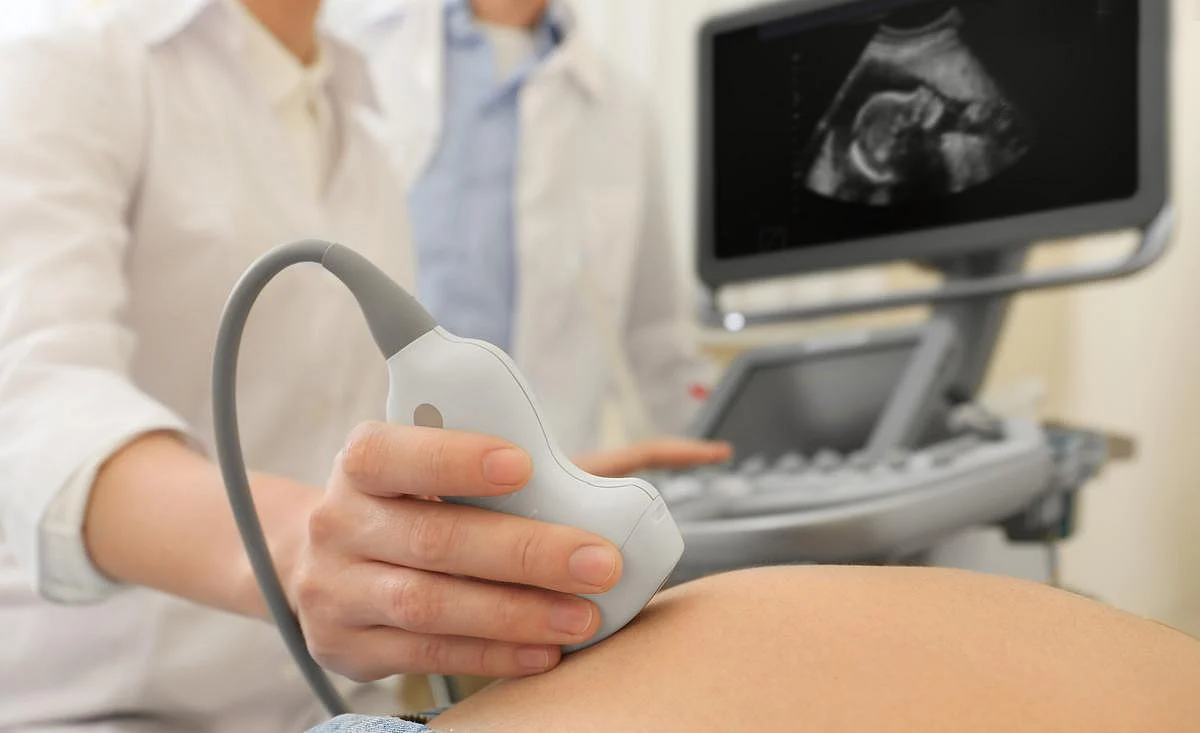Cerebroplacental Ratio Better Guides Delivery With Perceived Less Fetal Movement
THURSDAY, July 17, 2025 -- An additional ultrasound measurement to assess resistance in fetal blood vessels can improve the decision of whether to expedite birth when a woman in the final stage of pregnancy perceives less fetal movements, according to a study published online July 10 in The Lancet Obstetrics, Gynaecology, & Women’s Health.
Laura A. Lens, M.D., from the University of Groningen in the Netherlands, and colleagues randomly assigned women with singleton pregnancies in the cephalic position with perceived reduced fetal movements at term to either cerebroplacental ratio (CPR)-based management (revealed group) or care as usual (concealed group). Expedited birth was performed for CPR <1.1 and expectant management for CPR ≥1.1. A total of 1,684 women were included in the analysis.
The researchers found that 12 percent of women who received CPR-based management and 15 percent of women who received care as usual experienced the composite of adverse perinatal outcomes (stillbirth, neonatal mortality [<28 days], five-minute Apgar score <7, umbilical artery pH <7.10, or emergency birth for fetal distress or severe neonatal morbidity [relative risk, 0.76]). There were no stillbirths, and there was one neonatal death in each group. There were 12 serious adverse events in the revealed group versus 14 in the concealed group. None of these adverse events were assessed as related to the study procedure by the local principal investigator, the medical ethics board of University Medical Centre Groningen, and the data safety monitoring board.
"If doctors know the CPR result, they can better determine whether reduced fetal movement is harmless or requires action," lead author Sanne J. Gordijn, M.D., Ph.D., also from the University of Groningen, said in a statement. "This ensures that both mother and baby receive the care best suited to their situation."
Several authors disclosed ties to relevant organizations.
Abstract/Full Text (subscription or payment may be required)
Disclaimer: Statistical data in medical articles provide general trends and do not pertain to individuals. Individual factors can vary greatly. Always seek personalized medical advice for individual healthcare decisions.
© 2025 HealthDay. All rights reserved.
Read this next
Cancer Survival Lower in Rural Areas
WEDNESDAY, Oct. 1, 2025 -- Five-year cancer survival rates for each stage of cancer (localized, regional, and distant) is lower in nonmetropolitan areas for Black and White...
Loss of Smell May Linger After COVID-19
WEDNESDAY, Oct. 1, 2025 -- Self-reported change or loss in smell or taste is an accurate signal of verified hyposmia after COVID-19, although there is also a high rate of hyposmia...
Elderly Patients Benefit From Screening Mammography
WEDNESDAY, Oct. 1, 2025 -- Patients with breast cancer diagnosed at 80 years of age or older who received screening mammography present with earlier-stage disease and have better...
More news resources
- FDA Medwatch Drug Alerts
- Daily MedNews
- News for Health Professionals
- New Drug Approvals
- New Drug Applications
- Drug Shortages
- Clinical Trial Results
- Generic Drug Approvals
Subscribe to our newsletter
Whatever your topic of interest, subscribe to our newsletters to get the best of Drugs.com in your inbox.


